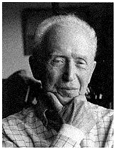Related Research Articles

Labour economics, or labor economics, seeks to understand the functioning and dynamics of the markets for wage labour. Labour is a commodity that is supplied by labourers, usually in exchange for a wage paid by demanding firms. Because these labourers exist as parts of a social, institutional, or political system, labour economics must also account for social, cultural and political variables.
A minimum wage is the lowest remuneration that employers can legally pay their employees—the price floor below which employees may not sell their labor. Most countries had introduced minimum wage legislation by the end of the 20th century. Because minimum wages increase the cost of labor, companies often try to avoid minimum wage laws by using gig workers, by moving labor to locations with lower or nonexistent minimum wages, or by automating job functions.

Feminist economics is the critical study of economics and economies, with a focus on gender-aware and inclusive economic inquiry and policy analysis. Feminist economic researchers include academics, activists, policy theorists, and practitioners. Much feminist economic research focuses on topics that have been neglected in the field, such as care work, intimate partner violence, or on economic theories which could be improved through better incorporation of gendered effects and interactions, such as between paid and unpaid sectors of economies. Other feminist scholars have engaged in new forms of data collection and measurement such as the Gender Empowerment Measure (GEM), and more gender-aware theories such as the capabilities approach. Feminist economics is oriented towards the goal of "enhancing the well-being of children, women, and men in local, national, and transnational communities."
Offshoring is the relocation of a business process from one country to another—typically an operational process, such as manufacturing, or supporting processes, such as accounting. Usually this refers to a company business, although state governments may also employ offshoring. More recently, technical and administrative services have been offshored.

Jacob Mincer, was a father of modern labor economics. He was Joseph L. Buttenwieser Professor of Economics and Social Relations at Columbia University for most of his active life.
Employment discrimination is a form of illegal discrimination in the workplace based on legally protected characteristics. In the U.S., federal anti-discrimination law prohibits discrimination by employers against employees based on age, race, gender, sex, religion, national origin, and physical or mental disability. State and local laws often protect additional characteristics such as marital status, veteran status and caregiver/familial status. Earnings differentials or occupational differentiation—where differences in pay come from differences in qualifications or responsibilities—should not be confused with employment discrimination. Discrimination can be intended and involve disparate treatment of a group or be unintended, yet create disparate impact for a group.

The gender pay gap in the United States is a measure between the earnings of male and females in the workforce. When calculating the pay gap, non-adjusted versus adjusted pay gap is utilized. The adjusted pay gap takes into consideration the differences in hours worked, occupations chosen, education and job experience, whereas the non-adjusted pay gap is the overall difference of gross hourly earnings of males and females in the United States. The non-adjusted average female annual salary is around 80% of the average male salary, compared to 95% for the adjusted average salary.

Immigration is the international movement of people to a destination country of which they are not natives or where they do not possess citizenship in order to settle as permanent residents or naturalized citizens. Commuters, tourists, and other short-term stays in a destination country do not fall under the definition of immigration or migration; seasonal labour immigration is sometimes included, however.
The economic results of migration impact the economies of both the sending and receiving countries.

Joshua David Angrist is an Israeli-American economist and Ford Professor of Economics at the Massachusetts Institute of Technology. Angrist, together with Guido Imbens, was awarded the Nobel Memorial Prize in Economics in 2021 "for their methodological contributions to the analysis of causal relationships".

Heidi I. Hartmann is an American feminist economist who is founder and president of the Washington-based Institute for Women's Policy Research (IWPR), a research organization created to conduct women-centered, public policy research. She is an expert on the intersection of women, economics and public policy. Dr. Hartmann is also a Research Professor at George Washington University and the editor of the Journal of Women, Politics & Policy.
Economics of participation is an umbrella term spanning the economic analysis of worker cooperatives, labor-managed firms, profit sharing, gain sharing, employee ownership, employee stock ownership plans, works councils, codetermination, and other mechanisms which employees use to participate in their firm's decision making and financial results.
Marianne Bertrand is a Belgian economist who currently works as Chris P. Dialynas Professor of Economics at the University of Chicago's Booth School of Business. Bertrand belongs to the world's most prominent labour economists in terms of research, which has been awarded the 2004 Elaine Bennett Research Prize and the 2012 Sherwin Rosen Prize for Outstanding Contributions in the Field of Labor Economics.She is a research fellow of the National Bureau of Economic Research, and the IZA Institute of Labor Economics.
Joyce Penelope Jacobsen is a former President of Hobart and William Smith Colleges. Dr. Jacobsen was elected as the 29th President of Hobart College and the 18th President of William Smith College. Jacobsen is a scholar of economics, an award-winning teacher and an experienced administrator. She began her presidency on July 1, 2019. She is the first woman to serve as president of Hobart and William Smith Colleges.

"Joop" (Joost) Hartog is a Dutch economist and an Emeritus Professor of Economics at the University of Amsterdam. He ranks among the most important Dutch labour economists and was elected to be a member of the Royal Netherlands Academy of Arts and Sciences (2001) and the Royal Holland Society of Sciences and Humanities. The Joop Hartog Dissertation Prize, a bi-annual prize for the best Ph.D. thesis defended at the University of Amsterdam's Faculty of Economics and Business, is named after Hartog.
Edwin Leuven is a Dutch economist and Professor of Economics at the University of Oslo. He is one of the leading European education economists, with a focus on the economics of training.
Deborah A. Cobb-Clark is an Australian economist. She is currently working as a Professor in the University of Sydney and as a Chief Investigator in the ARC Centre of Excellence for Children and Families over the Life Course. She has also worked in Bonn, Germany at the Institute for the Study of Labor (IZA) since 2000, where she holds the position of director of the Program in Gender and Families.
Lorraine Margaret Dearden is an Australo-British economist and professor of economics and social statistics at the Department of Social Science of the Institute of Education, University College London. Her research focuses on the economics of education.
Barbara Sianesi is an Italian economist currently a senior research economist at the Institute for Fiscal Studies in London. She obtained her PhD from University College London and a BA in economics from Bocconi University.

Andries de Grip is a Dutch economist, academic, and author. He is a Professor of Economics at the Research Centre for Education and the Labour Market (ROA), School of Business and Economics (SBE), Maastricht University and has been Director of ROA from 2013 to 2020.
References
- ↑ Curriculum vitae of Hessel Oosterbeek from the website of FLASCO. Retrieved January 2, 2019.
- ↑ Faculty profile of Hessel Oosterbeek on the website of the University of Amsterdam. Retrieved January 2, 2019.
- ↑ Ranking of Dutch economists registered on IDEAS/RePEc. Retrieved January 2, 2019.
- ↑ Ranking of education economists registered on IDEAS/RePEc. Retrieved January 2, 2019.
- ↑ Curriculum vitae of Hessel Oosterbeek from the website of FLASCO. Retrieved January 2, 2019.
- ↑ Curriculum vitae of Hessel Oosterbeek from his personal website (status: January 2018). Retrieved January 2, 2019.
- ↑ Curriculum vitae of Hessel Oosterbeek from the website of FLASCO. Retrieved January 2, 2019.
- ↑ Ranking of economists on IDEAS/RePEc. Retrieved January 2, 2019.
- ↑ Hartog, J.; Oosterbeek, H. (1988). "Education, allocation and earnings in the Netherlands: Overschooling?". Economics of Education Review . 7 (2): 185–194. doi:10.1016/0272-7757(88)90043-X. ISSN 0272-7757. OCLC 818862416.
- ↑ Hartog, J.; Oosterbeek, H. (1998). "Health, wealth and happiness: Why pursue a higher education?". Economics of Education Review. 17 (3): 245–256. CiteSeerX 10.1.1.198.6764 . doi:10.1016/S0272-7757(97)00064-2.
- ↑ Leuven, E.; Oosterbeek, H. (2011). Hanushek, E.A.; Machin, S.; Wößmann, L. (eds.). Overeducation and mismatch in the labor market (PDF). Handbook of the Economics of Education. Vol. 4. Amsterdam. pp. 283–326. doi:10.1016/B978-0-444-53444-6.00003-1. hdl:10419/51653. ISBN 9780444534446. S2CID 55445932. SSRN 1771245.
- ↑ Groot, W.; Oosterbeek, H (1994). "Earnings Effects of Different Components of Schooling: Human Capital versus Screening". Review of Economics and Statistics . 76 (2): 317–321. doi:10.2307/2109885. JSTOR 2109885.
- ↑ Ashenfelter, O.; Harmon, C.; Oosterbeek, H. (1999). "A review of estimates of the schooling/earnings relationship, with tests for publication bias". Labour Economics . 6 (4): 453–470. doi:10.1016/S0927-5371(99)00041-X. ISSN 0927-5371. OCLC 639064435.
- ↑ Harmon, C.; Oosterbeek, H.; Walker, I. (2003). "The returns to education: Microeconomics". Journal of Economic Surveys . 17 (2): 115–156. doi:10.1111/1467-6419.00191. ISSN 1467-6419. OCLC 231851794. S2CID 55485385. SSRN 416648.
- ↑ Leuven, E.; Oosterbeek, H.; Van Ophem, H. (2004). "Explaining international differences in male skill wage differentials by differences in demand and supply of skill". Economic Journal . 114 (495): 466–486. doi:10.1111/j.1468-0297.2004.00217.x. ISSN 1468-0297. JSTOR 3590104. OCLC 1066891226. S2CID 73723378. SSRN 265188.
- ↑ Oosterbeek, H. (1998). "Unravelling supply and demand factors in work-related training". Oxford Economic Papers . 50 (2): 266–283. doi:10.1093/oxfordjournals.oep.a028645. JSTOR 3488734.
- ↑ Leuven, E.; Oosterbeek, H. (2000) [1990]. The demand and supply of work-related training: Evidence from four countries. Research in Labor Economics . Vol. 18. Emerald Group Publishing Limited. pp. 303–330. CiteSeerX 10.1.1.483.3590 . doi:10.1016/S0147-9121(99)18026-9. ISBN 978-0-7623-0584-1. ISSN 0147-9121. OCLC 477327402.
- ↑ Leuven, E.; Oosterbeek, H. (2004) [2000]. "Evaluating the effect of tax deductions on training". Journal of Labor Economics . 22 (2): 461–488. doi:10.1086/381257. ISSN 0734-306X. JSTOR 381257. OCLC 605915677. S2CID 10364758. SSRN 246470.
- ↑ Leuven, E.; Oosterbeek, H. (2008). "An alternative approach to estimate the wage returns to private-sector training". Journal of Applied Econometrics . 23 (4): 423–434. doi:10.1002/jae.1005.
- ↑ Leuven, E.; Lindahl, Mikael; Oosterbeek, Hessel; Webbink, Dinand (2007). "The effect of extra funding for disadvantaged pupils on achievement" (PDF). Review of Economics and Statistics. 89 (4): 721–736. doi:10.1162/rest.89.4.721. S2CID 13566219. SSRN 542462.
- ↑ Fredriksson, P.; Öckert, B.; Ooosterbeek, H. (2012). "Long-term effects of class size" (PDF). Quarterly Journal of Economics . 128 (1): 249–285. doi:10.1093/qje/qjs048. S2CID 21570799.
- ↑ Buser, T.; Niederle, M.; Oosterbeek, H. (2014) [2012]. "Gender, competitiveness, and career choices". Quarterly Journal of Economics . 129 (3): 1409–1447. CiteSeerX 10.1.1.353.7973 . doi:10.1093/qje/qju009. S2CID 2118141.
- ↑ Oosterbeek, H.; Webbink, D. (2011). "Does studying abroad induce a brain drain?". Economica . 78 (310): 347–366. CiteSeerX 10.1.1.523.4654 . doi:10.1111/j.1468-0335.2009.00818.x. ISSN 1468-0335. OCLC 67183111. S2CID 30755769.
- ↑ Leuven, E.; Oosterbeek, H.; Van der Klaauw, B. (2010). "The effect of financial rewards on students' achievement: Evidence from a randomized experiment" (PDF). Journal of the European Economic Association . 8 (6): 1243–1265. doi:10.1111/j.1542-4774.2010.tb00554.x. ISSN 1542-4774. OCLC 969745054.
- ↑ Oosterbeek, H.; Van Praag, M.; Ijsselstein, A. (2010). "The impact of entrepreneurship education on entrepreneurship skills and motivation". European Economic Review . 54 (3): 442–454. doi:10.1016/j.euroecorev.2009.08.002. S2CID 11391574.
- ↑ Hartog, J.; Oosterbeek, H. (1993). "Public and private sector wages in the Netherlands" (PDF). European Economic Review . 37 (1): 97–114. CiteSeerX 10.1.1.505.8168 . doi:10.1016/0014-2921(93)90072-I. ISSN 0014-2921. OCLC 224614716.
- ↑ Oosterbeek, H.; Sloof, R.; Van De Kuilen, G. (2004) [2001]. "Cultural differences in ultimatum game experiments: Evidence from a meta-analysis". Experimental Economics . 7 (2): 171–188. doi:10.1023/b:exec.0000026978.14316.74. S2CID 17659329. SSRN 286428.
- ↑ Hoogendoorn, S.; Oosterbeek, H.; Van Praag, M. (2013) [2011]. "The impact of gender diversity on the performance of business teams: Evidence from a field experiment" (PDF). Management Science . 59 (7): 1514–1528. doi:10.1287/mnsc.1120.1674. ISSN 0025-1909. OCLC 829718561. SSRN 1826024.